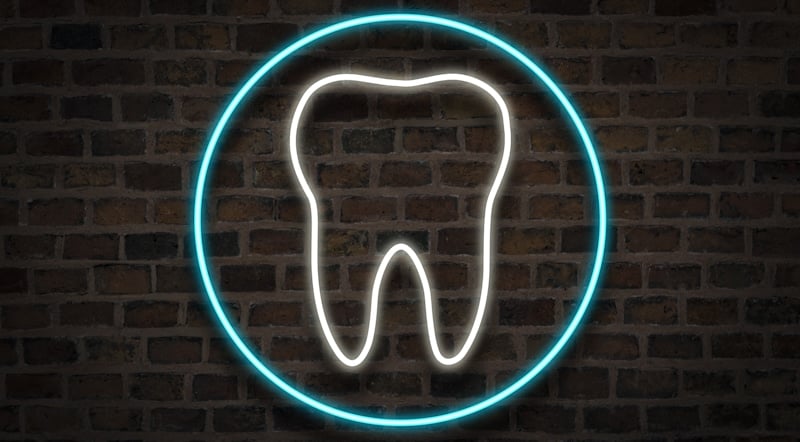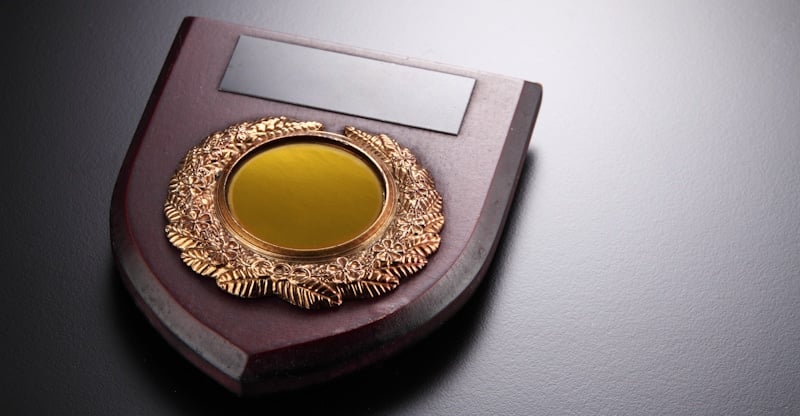A spelling mistake can have consequences in our lives. They affect the content of a text, a comment in a blog, or even a personal message. In all the cases mentioned above, the communication loses quality. Additionally, the person who wrote it also loses authority and prestige, both professionally and personally. This article will analyze the following question: “plaque” or “plack?” Which one is correct?
Many people use the word “plack” to refer to “plaque”, which is a spelling mistake. A “plaque” is a decorative memorial tablet of metal or wood and a bacterial substance that sticks to the teeth. In contrast, a “plack” is an ancient copper coin used in Scotland.
When we interchange words thinking they mean the same thing, we give the wrong meaning to the message we are sending. This article will develop the definitions, origins, uses, anecdotes, and some examples of the words “plaque” and “plack.” Read on, and you will understand how to use these two terms correctly.

What Does The Word “Plaque” Mean?
The word “plaque” is a noun that has many definitions. Below we will see its primary meanings.
- “Plaque” is a flat, thin decorative tablet made of metal, porcelain, or wood. It is an ornament that people hang on the wall or tables.
- Commemorative tombstones, often made of metal, that people or authorities hang on buildings or monuments.
- Brooch or ornament that some people wear as a badge of honor.
- In dentistry, a soft, whitish, sticky film that people have attached to their teeth. This film appears due to the growth of bacteria at the base of the teeth.
- In anatomy, it is a flat or raised spot on the skin or other organs. In atherosclerosis, it appears as a stain on the inside of the arterial walls.
- In bacteriology, it is the cleared region in a bacterial culture. This clear zone occurs due to the viral destruction of cells.
- It is a lesion of the brain tissue caused by Alzheimer’s disease. It consists of a group of axons and dendrites undergoing degeneration due to the disease.
The Origin Of The Word “Plaque”
Regarding the origin of the word “plaque,” there are few details or stories related to its emergence. However, we will briefly review the historical information available on the root of this word.
- In 1848, people defined the word “plaque” as “decorative plate or tablet.” This word came from the French “plaque.”
- From the Middle Dutch “placke” comes the definition of “disk, patch or stain,” which in turn is related to the German “placken,” which meant “stain or patch.”
- In 1891 the meaning of “deposit on the walls of the arteries” appears.
- In 1898 the meaning of “deposit of bacteria in the teeth” appeared.
What Does The Word “Plack” Mean?
The first element to emphasize is that “plack” is not a synonym for “plaque.” Many people confuse both terms because their pronunciation is practically the same. Unlike the word “plaque,” “plack” is a less widely used term. Here is its primary definition:
- Any of the small coins used in Scotland and the Netherlands during the 15th and 16th centuries. The value of this coin in Scotland was the equivalent of four Scottish pennies.
As an interesting fact, it is essential to say that only in Luxembourg the word “plack” has a similar meaning to “plaque.” These are some of the meanings of “plack” in Luxembourgish.
- Sheet of metal
- Stone slab or tombstone
- Ornamental plaque
- Sheet or layer
- Vinyl record
The Origin Of The Word “Plack”
Now we will check some of the informative records related to the origin of the word “plack.”
- The first use of “plack” occurs in the late 15th century from the Middle Dutch “placke.”
- We also find a Flemish origin in the word “plac,” with the definition of “small coin of variable value.”
- Between the 14th and 15th centuries, Regional Dutch “plak” also meant “small coin.”
- In Amsterdam in the 19th century, this word meant “coin worth two and a half cents.”
The Word “Plaque” In The World Of Dentistry
One of the most common current uses of the word “plaque” has to do with the world of dentistry. For this reason, we will now review several concepts and essential elements of the intervention of “plaque” in this popular specialty.
Understanding What “Dental Plaque” Is
Dental plaque is a sticky film that forms between our teeth every day. Many scientists call this layer “biofilm.” This name comes from the fact that plaque is a community of living microbes surrounded by a layer of polymers that is sticky. This layer helps the microbes stick to the teeth so they can grow into thriving microcolonies.
What Is The Difference Between “Tartar” And “Dental Plaque”?
If we do not remove plaque frequently, we may accumulate minerals in the saliva, which harden into a substance that dentists call tartar. People can partially remove this substance by flossing. Still, the best way to eradicate it is to visit the dentist.
The Word “Plack” As A Family Surname
The surname Plack appeared in England in the year 1066. Plack is the name of a manufacturer of woolen cloths and blankets. Plack is a reasonably typical example of what is a polygenetic English surname. This type of surname means that it was born in several different places, and then families adopted it independently.
One of the characteristics of Norman surnames is that they have a multitude of spelling variations. These changes in the spelling of surnames are because the Old and Middle English language did not have defined spelling rules. The introduction of Norman French, French, and Latin had a considerable influence on the spelling of surnames.
Often the scribes of the time and church officials recorded the names as they sounded, without paying attention to spelling rules. This fact is the origin of the different variations of Planck’s surname to Plucknett, Plunkett, Plugenett, and many others.
How Do People Use The Word “Plaque”?
“Plaque” is a word with multiple meanings. For this reason, its uses in contemporary society are also quite broad. Below we are going to list some of the primary uses of this word:
- To refer to commemorative plaques that people receive as recognition or for specific awards.
- To refer to any small plaque made of bronze or any other material.
- In the world of science, scientists use this word as amyloid plaque.
- In the field of medicine, it is a term for a type of skin disease.
- Physicians use the term pleural plaque to refer to cancer caused by exposure to asbestos.
- People also use this word to refer to a rectangular casino chip.
How Do People Use The Word “Plack”?
“Plack” is a word that is practically in disuse. For this reason, it is very uncommon for people to use it today, at least with its only accepted definition (old Scottish currency). However, we might occasionally hear someone use this word to refer to coins or money or find people with this word as their surname.
Example Of The Use Of “Plaque” And “Plack”
We are almost experts on the terms “plaque” and “plack”; now, we will review some examples in everyday sentences.
Examples Of The Word “Plaque”
- We should have the habit of brushing our teeth after every meal, flossing and using mouthwash to remove plaque.
- There is a tiny plaque in honor of the brave men of the battle.
- The prince unveiled the plaque at the inauguration of the new park.
- Monkeys do not form atherosclerosis plaques as humans do.
Examples Of The Word “Plack”
- In Switzerland, some people have plenty of plack in their pockets.
- Mr. Plack invited us to spend Sunday afternoon on his yacht.
A Final Thought On The Words “Plaque” And “Plack”
In the case of the words “plaque” and “plack,” “plack” may be a reasonably common misspelling. Phonetically there is no difference, and this contributes to errors in our written communication. The problem of spelling does not affect us only in our school years. Our adult life is full of activities that involve letters, resumes, mailings, jobs of all kinds, and more.
Therefore, to have effective communication, we have to create messages in the right way to avoid misunderstandings in the communication process.
Shawn Manaher is the founder and CEO of The Content Authority. He’s one part content manager, one part writing ninja organizer, and two parts leader of top content creators. You don’t even want to know what he calls pancakes.


